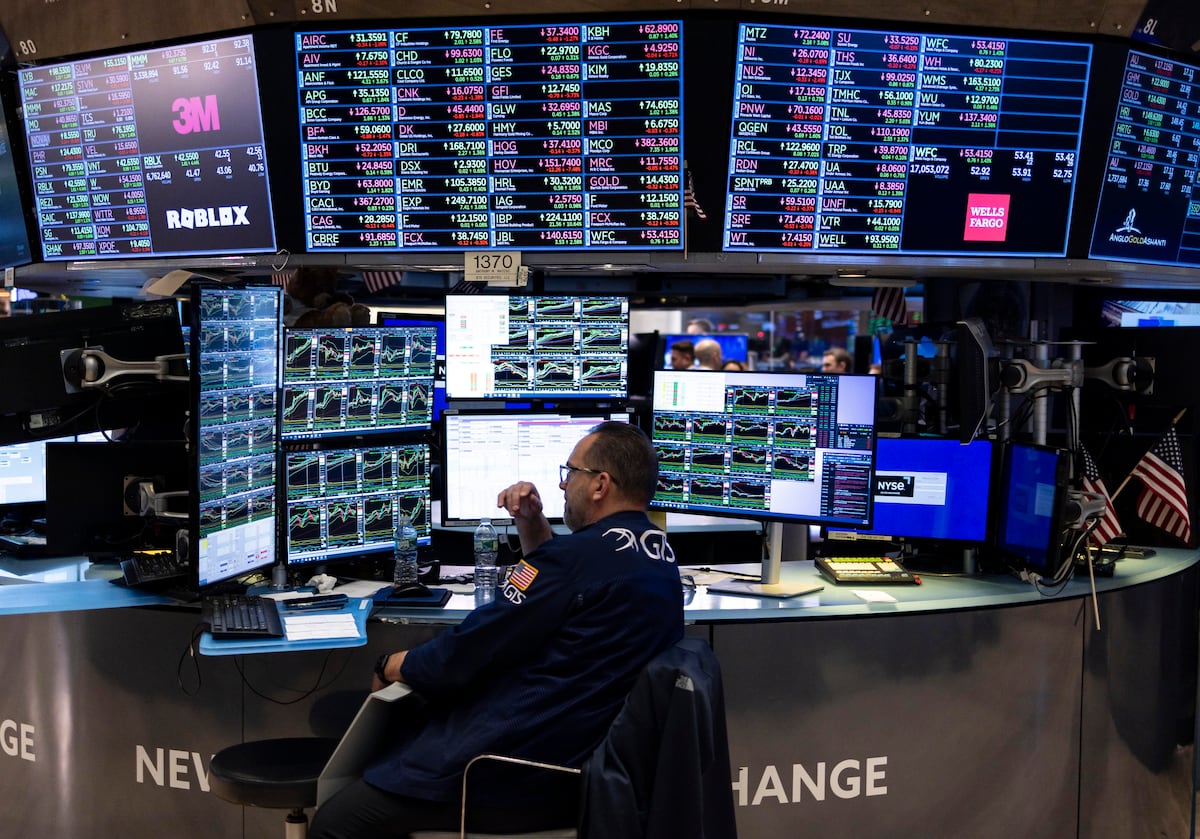Investors hold their breath: the Ibex index manages to hold 11,600 points | Financial markets

October started off on the wrong foot. After September broke statistics showing the ninth month of the year to be the worst month for stocks, escalating tensions in the Middle East are serving to accelerate the correction. Stock markets, which had begun to show signs of exhaustion, stalled along the way. While awaiting developments, investors prefer to remain cautious. The Ibex 35 index, which hit 12,000 points last week, a 15-year high, marked its third straight day of declines, falling 0.55%. Despite this decline, it remains above 11,600 points.
Unlike what happened on Tuesday, this time the outflow of money from stocks was not accompanied by a rise in bonds. Debt yields compensated for the previous day’s decline. French Prime Minister Michel Barnier’s forecasts, which suggest France’s government deficit could rise to 6%, coupled with better-than-expected US private employment data, mean yields are halting their decline. On both sides of the Atlantic, debt yields rose by seven basis points. While Spanish 10-year bonds and French 10-year bonds are yielding around 2.9%, German 10-year debt rises to 2.11% and US debt is at 3.8%.
The recovery in yields was a splash of water for public utilities and real estate. Acciona Energía lost 2.9%; Enagas – 1.52%; Redeia – 1.89% and Naturgy – 1.28%, while Colonial and Merlin remained at 1.21% and 1.23% respectively. Although Goldman Sachs gives Iberdrola a potential of 17%, the Spanish electricity company did not escape the cuts and yielded 1.94%. As always happens when war breaks out, flight cancellations mean a new downturn for travel companies. This time was no exception. IAG shares lost 2.55%, while Aena and Amadeus, two of the most bullish companies in September, fell 0.66% and 1.23%.
Solaria continues to show improvement in estimates following the results and gains 5.99%, which is the most bullish reading. Shares in Indra, the Ibex-listed company with the largest exposure to the defense industry, rose 4.07%. For its part, Repsol shares benefited from a recovery in crude oil prices and rose 0.29%.
The behavior of Ibex remained at the level of other European indices. Lower crude prices after OPEC+ agreed to increase supplies in December helped calm nerves. France’s Cac, which posted losses throughout the day, ended in a draw (0.05%), a performance mirrored by the Euro Stoxx 50 (0.09%), while Britain’s FTSE rose 0.17% and Germany’s Dax retreated . 0.33%.
As European markets close, Wall Street is struggling to maintain a positive outlook. On a day when all attention was focused on the Middle East, private sector employment data pleased investors. The private sector added 143,000 jobs in September, more than the 125,000 expected by the market, bringing five months of slowdown to an end. “ADP’s employment numbers were a surprise rise, suggesting the labor market is falling but breaking,” said Morgan Stanley analyst Chris Larkin. “The monthly jobs report on Friday will be the last word on the current outlook,” he stresses.
Volatility
Although September is considered the worst month for the stock market, October is usually the most volatile month. The first two sessions confirm the trend, but there is still a long way to go. Although the Iranian attack had limited effect, it was enough to disrupt the peace. Since World War II, average volatility in October is 34% higher than the 11-month average, according to a report prepared by investment firm CFRA accessed by Bloomberg. “Rising geopolitical tensions aside, we are heading into the final weeks of an open presidential election,” says Adan Phillips, chief strategist at EP Wealth Advisor. The firm he works for maintains a neutral recommendation on the stock market.
One reason that may help explain the volatility surrounding October is that stocks tend to ripple ahead of the US election and then recover. In addition to the noise caused by the US elections, the market will have to digest two jobs reports, a series of business results and a Federal Reserve meeting over the next six weeks, the appointment of which Jerome Powell has already cooled optimism this week and indicated that they do not expect a second contraction rates by 50 basis points. Analysts stress that investors will be concerned by any data that contradicts expectations of a soft landing.
Quotes
Stock markets – Currencies – Debt – Interest rates – Commodities